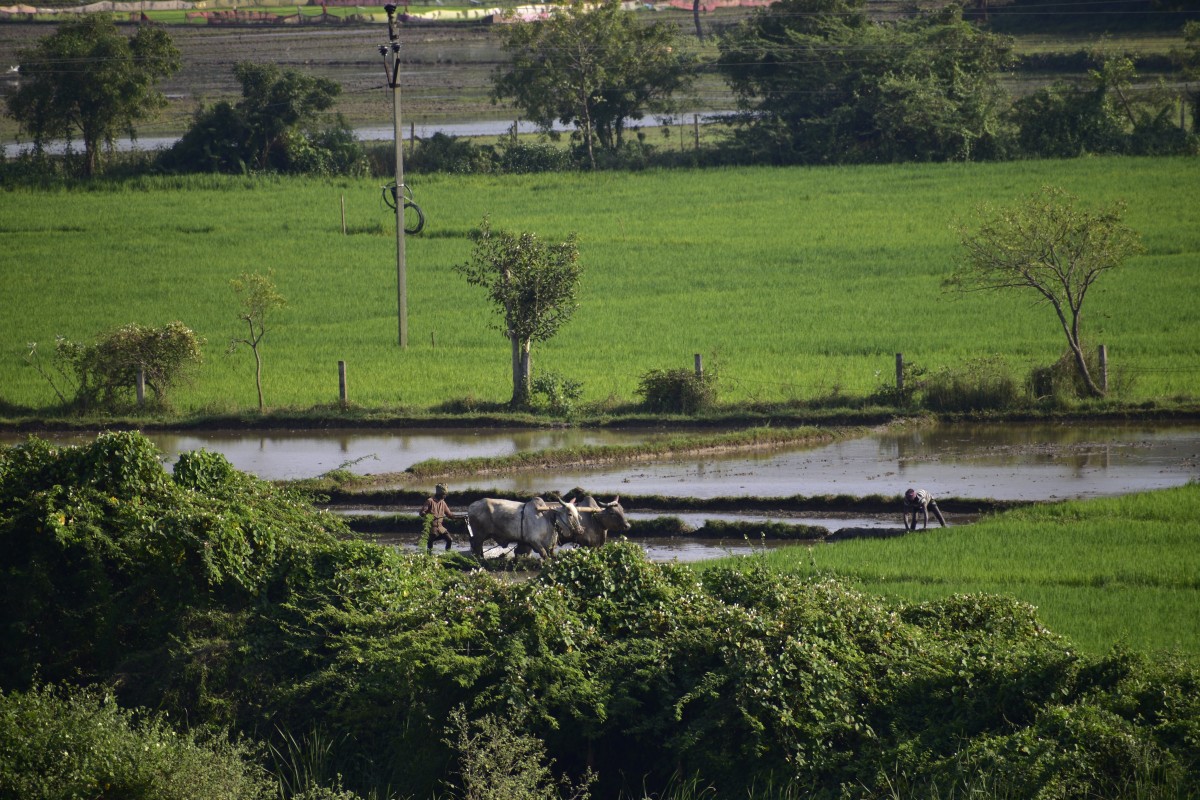To understand more about farming techniques, use of chemicals in farming practices, and how the hybrid seeds have evolved I got a chance to talk to a scientist who works on the organic practice in agriculture. Here are the excerpts from our chat.
Q: What is all this debate about Organic Farming and other farming practices? What exactly is Organic Farming?
A: A plant needs 16 elements to grow. Mainly Carbon, Hydrogen, and Oxygen. Carbon, Hydrogen, and Oxygen are taken from the atmosphere.
The next major elements are Nitrogen, Phosphorus and Potassium. These are called primary elements, also commonly referred to as NPK. This NPK is present in Urea and complex DAP that are given to plants in regular agriculture
The next three important elements are Calcium, Magnesium and Sulphur which are called secondary elements. These are needed for a plant to grow but are not required as much as NPK (primary elements).
The next 7 elements are Iron, Manganese, Zinc, Molybdenum, Copper, Chlorine, Boron. These are called Micronutrients. As the name suggests these are required, but in very less quantities when compared to others.
So in regular commercial farming, all these elements which are needed to the plant are given externally in the form of Fertilizers, urea etc. whereas in Organic farming, you do not use any of the chemical fertilizers instead use Farm Yard Manure and other natural waste and let the plant take all that needs from the soil.
Q: What did people use to give in the olden days when these fertilizers and other chemicals were not available?
A: There is something called farmyard manure. Farmyard manure consists of feces of farm animals along with any other waste, examples include vegetables/plants/ and any other wet waste. There is also something that was being given to plants, called Pressmud which is made from sugarcane waste
Q: Why do farmers use the ones in the form of chemicals when there is an organic form available?
A: Though it is organically available it is not easy for someone to get excretion of animals and then mix them with other substances and wait for some time to make that into manure. Instead, the chemicals are easily available in a readymade state at every nook and corner. Also, the amount of Nitrogen readily available for plants in a kg of Farmyard manure is far lesser than a kg of chemical fertilizer. In order to meet the plant’s expectations, you need to purchase/prepare large quantities of Farmyard manure which gets impractical in a commercial scenario. These are the main reasons behind the usage of chemical fertilizers by farmers.
Q: Is it not harmful to soil when chemicals are used?
A: In a developing country like ours, there are still people who die out of hunger. The hunger needs are to be addressed first. Every plant has the capacity to yield to a particular extent. For example, if a plant has a maximum capacity to give a yield of 10kgs, without adding any external fertilizers, it might give a yield of 5kgs. To reach that maximum yield we generally recommend adding external fertilizers (it can be anything organic or inorganic). But what happens in our country is people add more fertilizers thinking that it will give them more yield. For example, if we recommend adding 2 bags, they would end up adding 10 bags, thinking it would yield more results. But what they are missing out on is a plant can never yield beyond its maximum yield. And they end up with not so great yield. The investment would go high but the returns would hardly be visible. Because of this, there’s also an increase of salinity in the soil which again ends up affecting the plant growth in the future. So again to get the maximum yield they would end up adding more fertilizers and this would become a cycle.
Q: What is your opinion on native seeds and hybrid seeds?
A: Desi seeds definitely taste good. One of the varieties of paddy that is native to this place grows taller, taller than a person but tastes good. So when there’s heavy wind or rain there is a huge loss to the farmer as the plants can’t stand in heavy wind or rainy conditions. There are other issues like attracting the birds, not able to see termites because of the size of the plant, etc. To solve these kinds of issues and after a lot of research, scientists have invented a seed which has the same taste but the length of the plant is reduced and there would be more yield and also resistance to the diseases and termites of that particular area. They would take one gene from the native mother plant and at the same time will also select other genes according to the characteristics that they think would be suitable for that crop, people, and region.
So after inventing and advancing to this stage, going back to the original again might not address the problem we already faced in the first place.
Q: What is your opinion on Pesticides?
A: With respect to general produce, though we are cleaning vegetables and fruits before eating, the pesticides when sprayed would have gone inside them and we are facing problems (health) because of that. If not zero at least if used minimally it would be better.
Q: How to deal with pesticides? Why is there an increase in the usage of pesticides?
A: Heavy doses of pesticides are used to kill the pests. Every year there would be new pesticides that are more powerful than the earlier ones will be produced by companies that work once or twice and not be effective in the long run. The next year they have to address the issue with heavier pesticides and this goes on which is not a good sign.
Q: Overall opinion on organic farming, and how do you think it would sustain for a longer time?
A: For farmers, the government should encourage and create more awareness about Organic farming as not everyone is educated and provide a better MSP for organic produce. Also, farmers should stick to their word, they tend to turn to chemicals when they can’t sustain the losses. In organic farming, the soil becomes better and prevention of pests is better than cure, techniques like neem oil, buttermilk, and other natural practices can be followed to prevent pests.
Q: Your personal opinion on Hydroponics?
A: It’s good to pursue new technologies if they are proven to be commercially viable.
P.S: Don’t blindly trust organic shops which sell anything and everything in the name of Organic.

